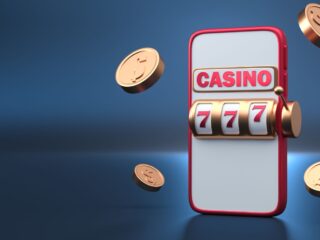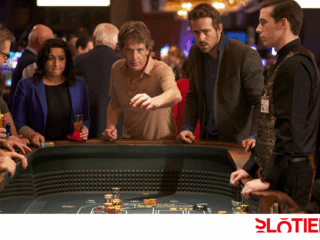
Having embraced advanced technology (mind you, from the days of yore, games have always been pushing the boundaries), the gaming industry is now experiencing a revolution with blockchain tech. At first, only acknowledged for its role in cryptocurrencies, it is shaking up game sectors by providing brand-new possibilities. This decentralized technology doesn’t just increase game security and fairness, but also allows players to have unprecedented control over their in-game assets.
Enhancing Security and Ownership
One of the most noticeable impacts of blockchain on games is its contribution to making ownership much more secure, particularly for in-game assets. In traditional gaming, players are often at risk of losing their in-game property due to hacking or server shutdowns. Blockchain — as many say — prevents this both by recording all transactions on a decentralized and immutable ledger that can’t be tampered with – and where every participant, regardless of role, is required to verify incoming transaction data. Therefore, once the player earns something in the game (such as an item or new achievement), it will be securely written on blockchain blocks where no one else is able to change or delete it.
What’s more, it could be said that with blockchain, players actually own their digital assets. In traditional games, players use their hard-earned money to buy new items and rewards which remain under the control of game manufacturers. However, once on the blockchain, players own everything they have collected in the game and can transfer or sell their property, or simply store it. This newfound way of gaming is changing player interactions — and it is truly a better experience all around, whether for monthly big prize winners or simply casual gamers!
Fair play is yet another area where blockchain is making itself felt in a big way. Traditional gaming platforms rise and fall with the fairness of their systems; whether it’s random loot drops or competitive matches, players have long looked askance at these mechanisms. But blockchain’s transparency and immutability offer an answer to this problem by making sure that all events in game must be verifiable and cannot be tampered with.
Changing Game Economies
From traditional game economies to digital currencies, the impact of blockchain technology is being felt ever more strongly. Through decentralized platforms, which players themselves establish and control, a player can readily transact virtually all types of in-game items. Decentralized platforms have no additional fees or intermediaries, giving the player both better value for his assets and more freedom with them.
Moreover, blockchain lets digital currencies be integrated into games, so people can make money — real money — by playing games. This change will also result in new sources of income for gamers. People will be able to earn “tokens” that represent ownership of assets in the games themselves, certify their credibility, and make them usable within a variety of games.
Original Game Development and Player Collaboration
Yet another example is blockchain’s impact on the game development process. Companies are now producing increasingly complex and intelligent virtual environments using smart contracts. These contracts make all the rules: they are stored on decentralized blockchains so that they can automatically instigate a suitable reward-distribution mechanism following an agreement, or even handle in-game transactions without it being necessary for third parties to intercede.
Through the combined process of crowdfunding and community-driven development, blockchain allows players to influence their favorite games while they are still in the making. It takes capital from players for new projects, offers them game features to vote on, and encourages community participation in future stage-setting decisions – the result is games designed more in keeping with what everyone would like to see.
The Players and Developers
Quite an array of potential usage exists in the field of blockchain combined with gaming. The way blockchain boosts security, shields ownership, restructures the in-game economy, and enhances collaboration between all players has remade not just how games are played but how they are experienced. This, coupled with evolving firmware, will bring a variety of innovative uses and applications into gaming. As technology advances, where gaming is concerned, parts that are being written now are subject to change.
Within this article, we started looking at the general (or larger) landscapes, and we can see how they’ve continued to unfold in the gaming world. This roiling mix promises a more exciting future, teeming with possibilities that have yet to be uncovered and exploited.
In short, blockchain technology is now bringing about comprehensive changes throughout the gaming industry. Not only making games more secure and fair but also giving players more control over their assets and promoting — wherever possible — a more collaborative development process by which to evolve future titles. As more developers and many new gamers take up blockchain, the future of gaming looks quite rosy; game worlds are already pretty diverse places where brand-new creations await you, and there are any number of unknown functions waiting to be discovered.








